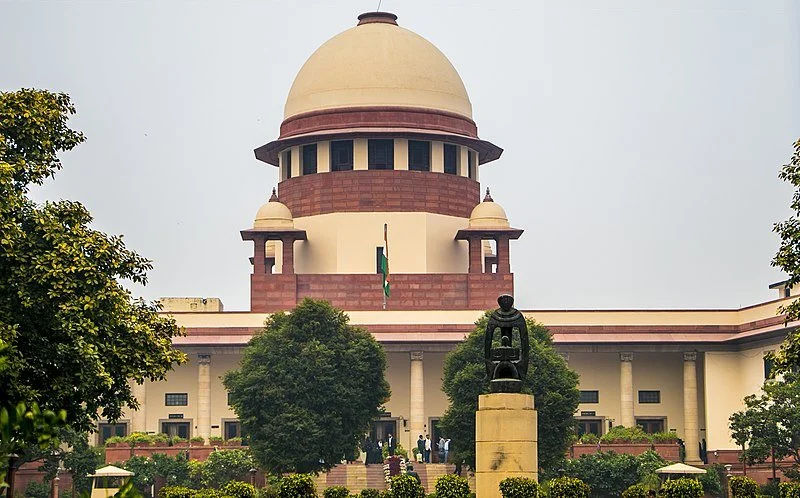
On October 17, 2025, the Supreme Court of India delivered a landmark judgment in Jane Kaushik v. Union of India that fundamentally transforms the legal landscape for transgender rights. This decision goes beyond interpreting existing law – it holds up a mirror to the systemic failure of state machinery to translate the constitutional promise of equality into lived reality for transgender persons.
The Petitioner, Jane Kaushik, is a transgender woman and qualified teacher. The case centered on the transphobic discrimination she faced at two private schools. The first school reportedly forced her resignation after eight days of service when her gender identity became known to students. The second school withdrew her employment offer upon learning she was transgender, denying her entry even before she could join.
The complete absence of grievance redressal mechanisms as mandated by the Transgender Persons (Protection of Rights) Act, 2019 (TG Act) at both the schools, as well as the negligence by state authorities in enforcing their duty to prohibit and prevent discrimination in private and public establishments led to the Petitioner approaching the Supreme Court directly under Article 32.
The bench, comprising Justices J.B. Pardiwala and R. Mahadevan, examined whether: (1) the Union and States had positive obligations to prevent discrimination against transgender persons; (2) state inaction constituted discrimination; (3) the schools discriminated against the petitioner; and (4) compensation was warranted.
The Court traced the evolution of transgender rights from the groundbreaking NALSA judgment (2014), which recognized the rights of transgender persons as equal citizens entitled to equal opportunity, inclusion and dignity, through to the enactment of the TG Act in 2019 and its Rules in 2020. However, it found that over a decade after NALSA and five years after the TG Act, the rights guaranteed remain “empty formalities.”
The judgment starkly documented governmental apathy: except for West Bengal, Tamil Nadu, and Delhi, no other state has framed rules; only eleven states have formed mandatory Transgender Protection Cells; and the Union Government has failed to formulate the equal opportunity policy directed by the Court in Shanavi Ponnusamy (2022).
In a doctrinal breakthrough, the Court established that “reasonable accommodation” is an implied obligation under the TG Act and a facet of substantive equality under Article 14. The Court drew from disability jurisprudence to hold that reasonable accommodation captures the positive obligations of both State and non-State actors to provide additional support to vulnerable persons to facilitate effective participation in society. It must necessarily extend beyond disability to address discrimination on all grounds, including gender identity.
Further, the Court reaffirmed the need for substantive equality approach, analysing Indian jurisprudence through the lens of Sandra Fredman’s four dimensions of substantive equality: (1) redressing disadvantage; (2) addressing stigma and stereotypes; (3) enhancing voice and participation; and (4) accommodating difference for structural change. Through this analysis, it established that the Constitution demands not just formal equality but transformative action. The State must dismantle systemic barriers and enable meaningful participation of the transgender community.
The Court also examined the liability of private establishments under the TG Act, holding that private schools and employers cannot hide behind the public-private divide when it comes to transgender rights.
The second school was found guilty of discriminating against the Petitioner solely on grounds of gender identity and both schools were liable for failing to appoint complaint officers. Critically, the judgment held the Union and State governments liable for “omissive discrimination”. Their inaction in implementing the TG Act violated the petitioner’s fundamental rights. Consequently, it directed compensation of ₹50,000 each from the discriminating school and from the Union and State governments respectively.
The judgment issues sweeping directions to streamline identity certification; maintain and expand Garima Grehs (shelters); provide gender-diverse infrastructure in public spaces, educational institutions, and hospitals; conduct awareness programs; and revise medical curricula. Concrete mandates to comply with the TG Act and Rules include establishing Transgender Welfare Boards and Protection Cells; designating complaint officers in all establishments; creating appellate authorities; and launching a nationwide toll-free helpline. State Human Rights Commissions are designated as interim forums for complaints.
To further a holistic and scientific review of the rights of transgender persons in India, the Court constituted an Advisory Committee to draft an equal opportunity policy, address gaps in the TG Act, streamline grievance procedures and documentation processes, and ensure protections for self-perceived identification of transgender persons. The Committee, comprising trans activists, legal experts, and government officials, must submit its report within six months. Notably, Nithya Rajshekhar (Senior Research Associate, Centre for Law and Policy Research) has been appointed as a member, and Jayna Kothari (Senior Advocate, Supreme Court of India) as amicus curiae to the Committee.
Jane Kaushik marks a reckoning for the TG Act, in confronting the absence of accountability mechanisms to realize the rights the Act seeks to recognize. By expanding the scope of reasonable accommodation into a broader equality tool, it squarely casts positive duties on both the state and private actors. Most importantly, it refuses to let fundamental rights remain dead letters, demanding that dignity and equality for transgender persons move from aspiration to implementation.
